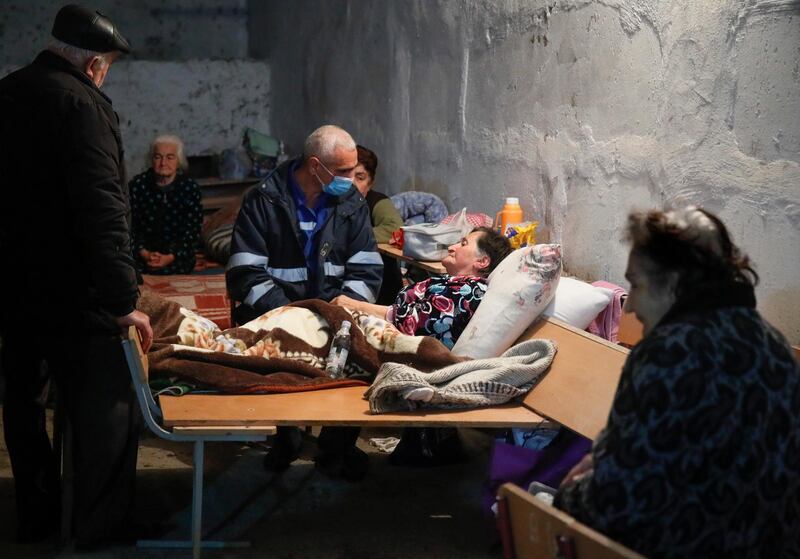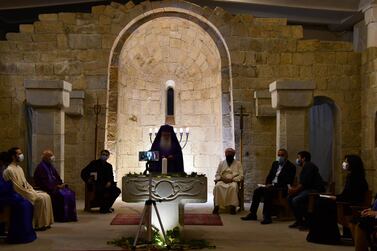Russia said on Saturday it would provide "necessary" assistance to Yerevan in its conflict with Azerbaijan over the breakaway region of Nagorno-Karabakh if fighting reached Armenia's territory.
"Russia will render Yerevan all necessary assistance if clashes take place directly on the territory of Armenia," the foreign ministry in Moscow said, calling on the warring sides to immediately halt fire.
Earlier Armenian Prime Minister Nikol Pashinyan asked Russian President Vladimir Putin to begin "urgent" consultations on security assistance and came after Armenia and Azerbaijan failed to agree a fresh ceasefire in Nagorno-Karabakh conflict during talks in Geneva on Friday.
Russia has a military base in Armenia and has a defence treaty with Yerevan.
Azerbaijan and Armenia have been locked in a bitter conflict over Karabakh since Armenian separatists backed by Yerevan seized control of the mountainous province in a 1990s war that left 30,000 people dead.
The current clashes broke out on September 27 and fighting has persisted despite the repeated international attempts to secure a ceasefire.
In his letter to Mr Putin, Mr Pashinyan said that hostilities were getting closer to Armenia's borders and reiterated that Azerbaijan's ally Turkey was backing Baku, according to the statement.
Friday's talks lead to agreement on measures to defuse tensions, including vowing not to target civilians, mediators said.
Armenian Foreign Minister Zohrab Mnatsakanyan and his Azerbaijani counterpart Jeyhun Bayramov sat down for face-to-face talks aimed at reining in more than a month of clashes in the disputed region that have killed more than a thousand people.
Mediators from France, Russia and the US – known as the Minsk Group – said in a statement they had urged the sides to fully implement a previously agreed ceasefire.
Both sides, the statement said, had "engaged in an open and substantive exchange of views aimed at clarifying their negotiating positions" on sticking points in the ceasefire agreement reached in Moscow on October 10.
That and two subsequent ceasefire agreements – the most recent one negotiated in Washington less than a week ago – have failed to halt the bloodshed.
While Friday's statement made no mention of fresh ceasefire commitments, it said the sides had "agreed to take a number of steps on an urgent basis".
They had committed to "not deliberately target civilian populations or non-military objects in accordance with international humanitarian law," it said.
They had also agreed to "actively engage in the implementation of the recovery and exchange of remains on the battlefield".
Both sides also said that within a week they would deliver lists of currently detained war prisoners to the Red Cross "for the purposes of providing access and eventual exchange".
And finally they committed to provide written comments and questions related to discussions around introducing mechanisms to verify if a ceasefire was being upheld – viewed as a key priority in the talks.
Earlier this week Azerbaijani President Ilham Aliyev said he was not against the new round of talks in Geneva but appeared to downplay their significance.
"There have been a lot of meaningless meetings over the past 28 years," he said.
More than 1,200 people from both sides have been reported dead since the fighting began, and thousands forced from their homes.
Azerbaijan has not released military casualty figures and the death toll is believed to be higher, with Russian President Vladimir Putin saying last week close to 5,000 people had been killed.







